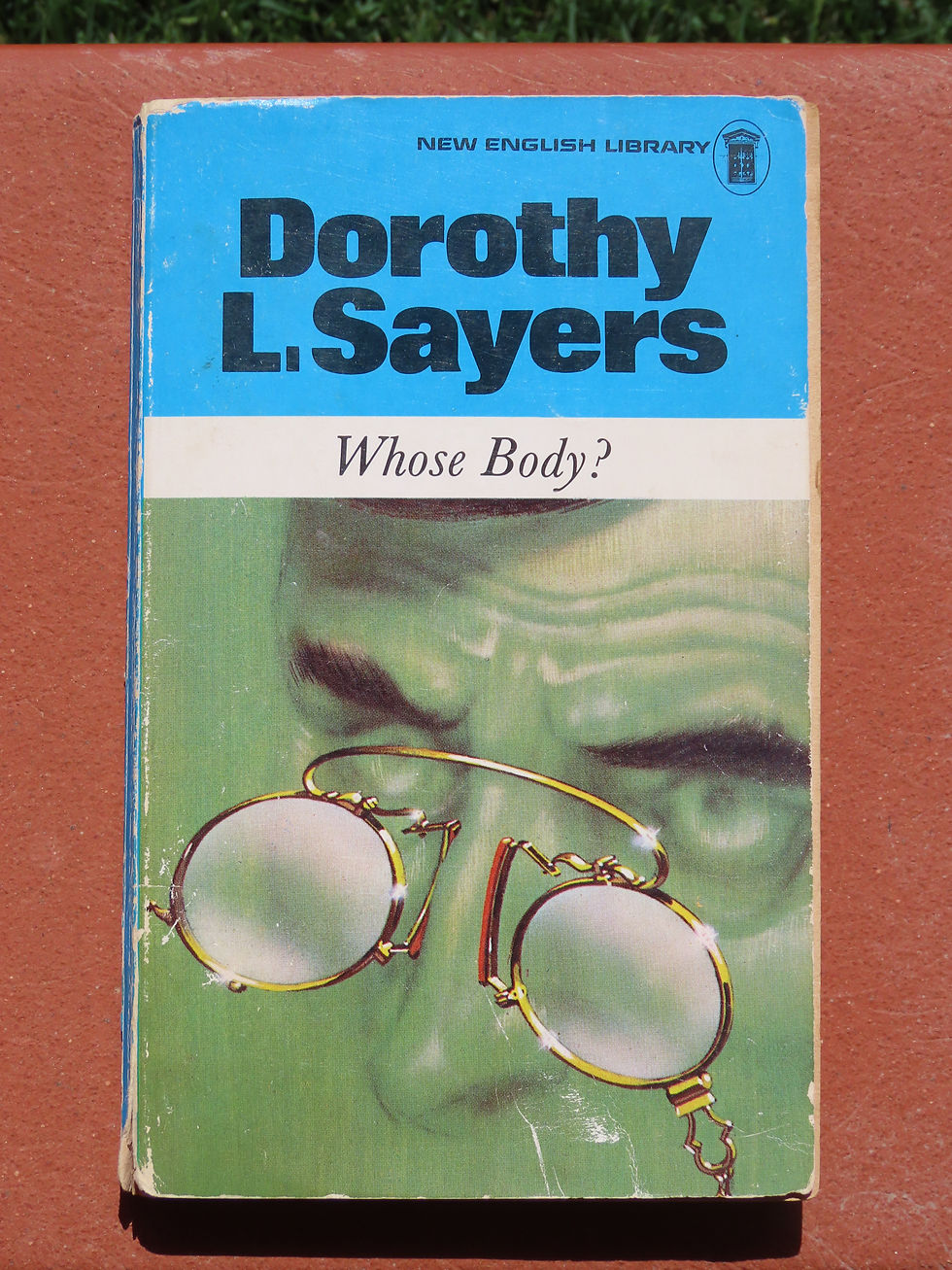
New English Library 1973, originally published in 1923
184 pages.
Genre: crime
Key words: murder, England, between first and second world wars, Lord Peter Whimsey aristocratic amateur detective, funny, cozy,
Grade: 5/5
I will read more by this author
This is the first of the Peter Whimsey books.
Whose body? Indeed, but who are we talking about? In the book there are two mysteries: a naked gentleman with an old-fashioned pince-nez found in a bath, dead after a blow to his head and a man of finance disappeared, the vanishing Jew; they look of similar age and built.
Peter gets involved because the body is placed in the bath of the architect on the restauration at the church in Peter’s home village, Denver. Peter comes to realize that the killer is “a poet of crime, an artist with a sense of humor”; but there is nothing nice about murder. Peter gets an attack of what we today call post traumatic stress syndrome, after shell shock in the war. He took up detecting because it was so damned exciting, and he enjoys it but then he finds who did it and they are send to prison or hanged, which disturbs Peter very much. In detecting he fulfills a duty to society.
This book was published 99 years ago; there was probably not as many mystery novels around as we have today, so I found it interesting that in the book there is an explanation of basic concepts in investigating a crime like rigor mortis, finger- printing and how it is done, and also how finding a motive for a crime can be important in detecting. All these things a reader of mystery and crime novels today just knows a little about.
Reading the book there are many passages where I started to laugh out loud because it is so funny and even silly, it is mostly the bla-bla of Peter. I like it.
Sir Julian Freke is a surgeon and a neurologist and psychiatrist, the MD that is ‘in’ and everybody’s darling; he has written several books including on criminals, when Peter reads his book, he realizes that he is a man that admires successful criminals.
The reason I read the book is because in the Amande Cross books she mentioned them; like in those books here is also a wealth of literary quotations that I did not know. Some I looked up and learned.
It is the period between the wars with an old-fashioned atmosphere, with the aristocracy having more rights than the common people, which is also made cleared in the fact that the workhouse pauper is never named. Peter actually asks Bunter, being paid £200 to keep your thoughts to yourself if in these democratic days, whether that is unfair. Bunter is very much into ‘upstairs and downstairs.’
Quotes I liked
Peter to Bunter, the butler, “you are a demon for coffee, I don’t know how you do it, I believe it to be witchcraft.”
Peter to Parker ‘If you’re only gluing your faith to cadaveric lividity, rigidity and all the other quiddities, you must be prepared to a sceptical beast of a prosecuting counsel walk slap-bang through the medical evidence’ here I imagine the author sitting laughing to herself writing this.
‘The Coroner said that with the influenza about again an unventilated room was a death-trap; that anybody who chose to object to open windows had the obvious remedy of leaving the court.’ And that is true today with the corona as well!
On the author:
Dorothy Leigh Sayers 1893- 1957, British.
She was one of the first women to graduate from Oxford at a time where women could not get a degree; she had honors, of course. She studied modern languages and medieval literature. In 1920 she did graduate her MA with a degree!
She wrote poetry and plays, and 11 books with Lord Peter Whimsey. She considered her translation of Dante’s Divine Comedy as her main work.
Comentários